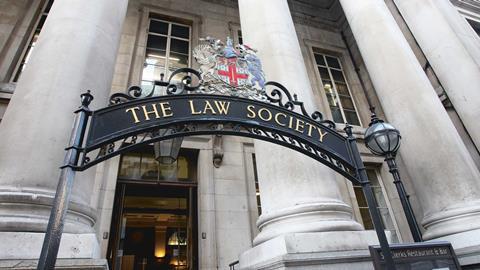Because of the pandemic this was Council’s first full meeting conducted remotely
Consulting on the practising fee
We are more aware than ever that we are spending members’ money to support the profession, firms and members through challenging times.
We are now consulting members about a £3m reduction in our part of the practising fee for 2020/21. This is a 10% decrease.
The Law Society receives around 30% of the practising fee. The largest portion (70%) covers the total costs of the Solicitors Regulation Authority, part of the costs of the Legal Services Board and Legal Ombudsman, the full cost of the Solicitors Disciplinary Tribunal and certain levies under the Legal Services Act. Although we propose to reduce our portion by £3m, proposed increases elsewhere will result in a flat practising fee overall.
Our planned reduction is part of a support package which equates to about £4m. This is made up of a reduction in the PC fee by the Society, driving down operating costs by £3m, along with free training programmes, and additional free-to-access webinars and support to help members deal with the challenges they and their firms will face. It also includes targeted direct support with accreditation discounts for conveyancing and criminal members. We have fulfilled our public interest role too, financially supporting charities focused on access to justice.
We are keeping this support and assistance under review.
Pandemic support for members
Council were updated about the work undertaken to support members through the initial stages of the pandemic and to look forward and plan for ‘the new normal’.
Legal aid and financial support
Council heard that our work has focused on discussions with the Legal Aid Agency, member safety and broader business support for the sector.
We lobbied the LAA, resulting in changes including the pausing of audit activity, and agreement not to enforce contract provisions affected by lockdown. Acceptance of digital signatures and additional time to submit applications has also been achieved.
Tackling the triple whammy of cashflow, loss of income and future sustainability for the sector has been a focus. This includes pushing for a relaxed approach to the standard monthly payments, a reduction in business rates and a reversal of the 8.75% fee cut two years ago. We are also pushing for the restart of the Criminal Legal Aid Review consultation with an immediate focus on the ‘accelerated items’ consultation that was paused in March, and a swift return to addressing sustainability.
Member safety
Safety in police stations and courts has also been a focus. We worked on a protocol to permit solicitors to attend police interviews remotely by video and phone, with changes to codes of practice now being developed. We are continuing to raise safety issues as part of ongoing dialogue with the National Police Chiefs Council, HMCTS and others. We have influenced the HMCTS national risk assessment, and tool for individual court risk assessments. We have also created a tool for reporting complaints which is now live.
Remote hearings: civil and family courts
Remote hearings by default must not become ‘the new normal’, especially in the absence of robust data about how well these work for different users. We responded to the president of the Family Division’s rapid consultation on how remote hearings are working in the family courts, and the separate Civil Justice Council rapid consultation asking the same questions in the civil courts. We also wrote to the president of the Immigration Tribunal with concerns about the practice statement issued at the start of the pandemic. The tribunal will take a flexible, case-by-case approach, and a new practice statement is expected imminently.
Conveyancing
Government regulations and guidance have focused on the residential market and so have we. We worked to provide a draft clause and related guidance for use where clients had already exchanged when social distancing was introduced. We launched further guidance and information for consumers as the regulations were amended to enable the market to begin to reopen. We are now looking at what can be learned from the crisis, such as how the use of electronic verification, electronic and digital signatures could assist the conveyancing process.
Wales
Council was due to be in Cardiff but it met virtually. A message from Jeremy Miles, counsel general for Wales, was played highlighting the work of the Society and Council members in Wales, and the Wales committee providing value to members in Wales. It highlighted the Commission on Justice’s report and plans for a Law Council which the Society will be involved with. A pledge to collaborate to reinvigorate rural and post-industrial Wales as a legal centre in the UK was also highlighted.
Professional body and the regulator
The Law Society and the SRA have distinct yet complementary roles. We have agreed that now is the time to establish the SRA as a distinct legal entity within the Law Society Group. Both organisations can focus on our respective roles while working together when appropriate.
Going virtual
Council and committee meetings will continue to be virtual. The presidential team will remain in their current positions until the AGM, which will be in October. It may be possible to hold this face to face, though decisions will be taken nearer the time. Election of the new deputy-vice president will happen alongside the AGM. The process for nomination of new Council members will commence in June but the elections only take effect at the AGM.
Nominations for Council elections are open. Notice of the date of the AGM will be published in advance as required.
The next Council meeting is 15 July.




























1 Reader's comment